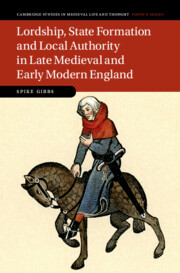Acknowledgements
This book has been written while studying and working at three different academic institutions, and at each of these I have accumulated many debts, without which this book could not have been completed. The book began as a Ph.D. thesis undertaken at the University of Cambridge. I am very grateful to the Master and Fellows of Trinity College for three years of funding which supported this research. At Cambridge, I was lucky to be part of the Cambridge Group for the History of Population and Social Structure which provided not only a stimulating academic environment in the offices in the History Faculty and at Thursday morning ‘Brown Coffee seminars’ but also a congenial atmosphere at numerous pubs around Cambridge and the annual summer party. I am grateful to Drs Amy Erickson, Leigh Shaw-Taylor and Xuesheng You, who all provided help, in one form or another, throughout this time. In particular, my office-mate Dr Alex Wakelam provided invaluable comments and encouragement throughout writing the Ph.D. and sat patiently through many discussions about manorial officeholding. I also owe a great deal of thanks to Professors Richard Smith and Jane Whittle, who acted as examiners for the Ph.D. thesis. Their probing questions substantially changed the direction and scope of this research, and chapters 3 and 6 of this book largely exist to try to respond to their comments.
The Department of Economic History at the London School of Economics, as well as providing a much-needed livelihood, also exposed me to a different approach to economic history. I am grateful to the school for a grant to support research during the Covid-19 pandemic which allowed me to gather additional archival material. I also would like to state my appreciation for my various office-mates in 6.15 Sardinia House, and Drs Mannik Nath and Guillaume Yon, who always provided help and support, especially during the pandemic. I would especially like to thank Drs Jordan Claridge and Karolina Hutkova, who, amongst many other kindnesses, helped me turn my ideas into a coherent book proposal. The book has been finished while beginning a new position at the University of Mannheim. Here I am grateful to my new colleagues in the Historical Institute, who have been so welcoming and made moving to a new country far easier. I would also like to thank Drs Stephan Nicolussi-Köhler and Tanja Skambraks, and Lienhard Thaler, for their advice on the Conclusion.
The book has also benefited from comments on papers given at seminars in Cambridge, the LSE and Kiel, as well as presentations at the Fifteenth Century Society Conference, the British Agricultural History Society Spring Conference, the Economic History Society Annual Conference, the Warwick Symposium on Parish Research, the Experiences and Practices of Freedom in the Late Middle Ages Workshop in Seville, and the German Influence in Medieval Europe Workshop in Mannheim/Heidelberg. I thank audiences at all these events for engaging with this research and their helpful comments. I would also like to acknowledge the help of archivists at Cambridge University Library, King’s College Cambridge, the National Archives, Norfolk Record Office, Shropshire Archives, Suffolk Archives: Ipswich Branch and Winchester College Archives. Without their work, and in particular their efforts to allow access to materials, particularly in the extremely difficult circumstances during the Covid-19 pandemic, it would not have been possible to write this book. I am also grateful to Selma Korbach for her research assistance in helping produce Map 6.1. In addition, I am very thankful to Jane Smith, and the rest of the Worfield History Group, who kindly shared their photographs with me. I would also like to thank the editorial board of Cambridge Studies in Medieval Life and Thought, and commissioning editor Liz Hanlon and editorial assistant Victoria Phillips, for answering many questions and their patience in guiding me through the editorial process.
My greatest academic debt is to Dr Chris Briggs. Having acted as both supervisor for my Ph.D. and editor for Cambridge University Press, Chris has seen this book from its origins to the final manuscript. Throughout, he has been encouraging, enthusiastic and generous with his time, as well as providing invaluable comments on numerous drafts. I very much hope the book lives up to the high standards he sets in his own work.
Beyond my academic debts, I have been very lucky to benefit from support from friends and family, who knew when (and when not!) to ask how the book was progressing. I am particularly grateful to my parents and sisters, who always supported me throughout my studies and, crucially, fostered my love of history when I was growing up. Finally, I am grateful to my wife, Tabby, who has lived with this project for the past eight years, read numerous drafts and has always been a source of support and encouragement throughout.



